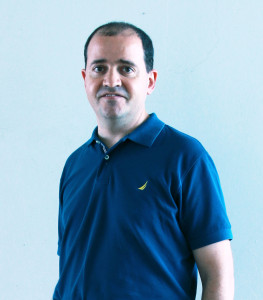Valerio Scarani, National University of Singapore – Quantum Randomness
 Quantum physics deals with some fascinatingly abstract concepts.
Quantum physics deals with some fascinatingly abstract concepts.
Valerio Scarani, Professor in the Department of Physics and Principal Investigator at the Centre for Quantum Technologies, National University of Singapore, delves into his complex research.
Dr Valerio Scarani is an expert in theoretical quantum physics, doing research that spans from abstract topics in quantum correlations to assessment of experiments. He has led a research group in Singapore since 2007and won Singapore’s National Science Award in 2008. Previously, he received his PhD in 2000 from Ecole Polytechnique Federale de Lausanne, Switzerland, and worked in the group of Nicolas Gisin at the University of Geneva, Switzerland. He has written two introductory books on quantum physics.
Quantum Randomness

When in 1927 Max Born proposed that quantum theory can describe only probabilities while single events are random, Einstein was quick in writing him a letter, stating his conviction that God does not play dice. But randomness is not a temporary feature of an imperfect theory: it is a fact of nature.
In 1964 John Bell, a physicist working on particle physics, ventured into what at that time were considered philosophical questions and proposed his famous “inequalities”. 50 years later, we can safely distinguish the speculations they may have inspired from what they actually prove: if a process shows a violation of Bell inequalities, the outcomes of the process were surely not pre-determined.
And the violation has indeed been observed in many experiments: thus, there is randomness in nature. We discovered it through quantum physics, but any future improved theory will have to predict the same violation, just like general relativity still predicts that apples fall.
Besides, it’s not pure philosophy, as many thought back in Bell’s time. Randomness is a useful resource for gaming, simulations, and for keeping secrets. Simple quantum random number generators are already available. The ones based on Bell inequalities, called “device-independent”, are currently a challenge for research labs.
Of course, physics can’t falsify conspiracies like the one of the movie The Matrix; and some interpretations of quantum physics invoke unobservable fields or multiple universes to do away with ultimate randomness. But under the reasonable assumption that one has access only to the information observable in our universe, all agree that some events are intrinsically unpredictable.



Awesome! Singapore!!!!